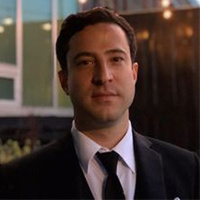Toronto Eminent Domain Lawyer, Ontario
Sponsored Law Firm
-
 x
x

Click For More Info:
-
Law Offices of Jonathan Kleiman
1235 Bay Street Suite 700 Toronto, ON M5R3K4» view mapBusiness Law Toronto Business Lawyer
Let the Law Offices of Jonathan Kleiman handle all your Business legal needs today!
855-416-0416
Not enough matches for Toronto Eminent Domain lawyer.
Below are all Toronto lawyers.
Anamika Sinha
✓ VERIFIEDAnamika Sinha provides dedicated and quality legal services for our clients in the areas of Drafting, Immigration, Collaborative Family law, Child and... (more)
Jonathan Kleiman
✓ VERIFIEDI am looking forward to seeing how I can help you. Don’t hesitate to call!
Susan Alalade
✓ VERIFIEDSusan Alalade studied at the University of Benin where she had a Bachelor of Law. She continued studying at the Nigerian Law School for 1 year and obt... (more)
Christopher Achkar
✓ VERIFIEDChristopher works with both employees and employers regarding all their employment law needs, including human rights and business litigation issues. ... (more)
Harrison Simon Jordan
✓ VERIFIEDHarrison Jordan is the Founder and Managing Lawyer at Substance Law, a law firm with a focus on Canadian legal matters related to regulated substances... (more)
Jeffrey Avrum Perlmutter
✓ VERIFIEDMy clients appreciate the personal service they receive from my firm. I believe it is important to keep in touch with clients and to keep them regular... (more)
John Edward Charles Hyde
✓ VERIFIEDJohn-Edward C. Hyde is a Partner and Chair of the Management-side Labour Group, at Hyde HR Law. John is one of only 22 lawyers in Canada, certified as... (more)
Karen Rosalee Caroline Cunningham
✓ VERIFIEDMs. Cunningham holds an Honours Degree in Political Science graduating Summa Cum Laude, First-Class Standing, from McMaster University in Hamilton, On... (more)
Leanne Townsend
✓ VERIFIEDProviding a unique combination of family or criminal law legal services and life coaching using a holistic approach. Helping clients as a lawyer, sup... (more)
Lisa Ruth Gelman
A natural entrepreneur, Lisa took a few detours after law school before settling in family law, where she has happily been in private practice for the... (more)
 Jonathan Kleiman Toronto, ON
Jonathan Kleiman Toronto, ON AboutLaw Offices of Jonathan Kleiman
AboutLaw Offices of Jonathan Kleiman










